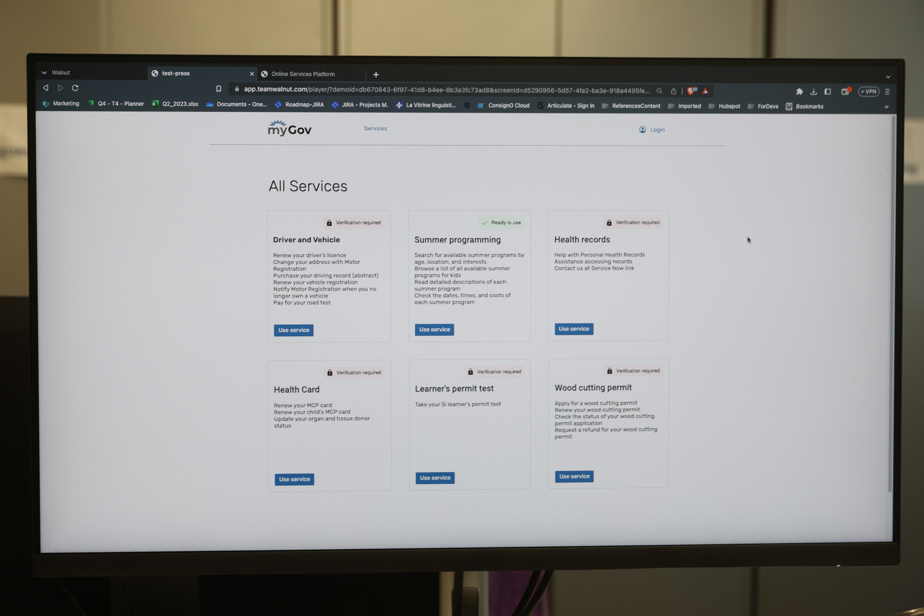Every Monday, we present to you a company that innovates.
Imagine a single online platform that would provide easy access to most government services, with fast, simple and secure identity verification.
Using this platform, municipalities and governments could build a secure, easy-to-authenticate digital “citizen identity.” It would allow the verified electronic signature of authorizations, certificates, digitized contracts.
This is what Portage CyberTech has just launched, claiming that its solution is “a game-changer for governments and organizations looking to modernize their public services”.
Incorporated in 2021, Portage CyberTech brings together five companies that each worked in their own sphere of cyber technologies. One of these is Notarius, founded in 1996 by the Chambre des notaires du Québec to support the digital transition of its members. Notarius has since become a private company that offers its electronic and digital signature solution to more than fifty professional orders and associations.
Partage CyberTech is established in Gatineau, while the offices of Notarius remain in Montreal. The organization has nearly 150 employees.
With the Portage CyberTech platform, a citizen could have access to all online public services in a single login session.
For example, by accessing it from a government website, he could renew his driver’s license, consult his health records and pay his taxes in one place.
The Portage CyberTech platform combines different functions for digitally signing documents, building a digital identity, managing access and verifying identity.
“It’s a kind of umbrella, which brings together the majority of trust services that a government or a municipality needs to offer online services”, describes Patrick Drolet, President and CEO of Notarius and Chief Operating Officer of Portage CyberTech. .
These various elements can be used independently, but are designed to integrate well into a single point of service – that’s where some of the innovation lies, he argues.
The platform is based on a “privacy-protected access management” system, which varies the number and quality of information required for citizen authentication depending on the services they require.
As Patrick Drolet points out, renewing your canine license with your municipality does not require the same degree of security as accessing your medical file.
The platform applies the latest and most rigorous standards, he says. It does not keep any copies of the documents that were used to constitute a digital identity, but it does hold the proof of their existence and their authenticity.
“The less information you keep, the less attractive you are to hackers,” he argues.
Citizens’ personal information and privacy are protected, while giving them easy access to government services.
The Portage CyberTech online services platform was announced at the end of March.
“The next steps are to make it known,” says Patrick Drolet. We already have some good customers. We aim to develop clienteles at the municipal, provincial, federal and parapublic levels. »
Some of its functions have already been implemented by some provincial and territorial governments. Already, a Canadian province that Patrick Drolet cannot name uses them to constitute a digital citizen identity, as much for its government services as for the services of the health system. “At a fraction of the price,” he says.
“Currently, we have very good growth. Since COVID-19 and with telework, there has been an explosion of everything related to remote services, remote signing, customer experience with online services. It is a question of continuing to develop these markets. Not just in Quebec. Our revenues are less than 50% in Quebec. »
They come mostly from the rest of Canada, but the company is “starting to have a nice expansion in the United States”.
On May 5, a few days after our interview, the Government of Quebec announced an $8 million loan to Portage CyberTech to support its growth and sales in the international market.
